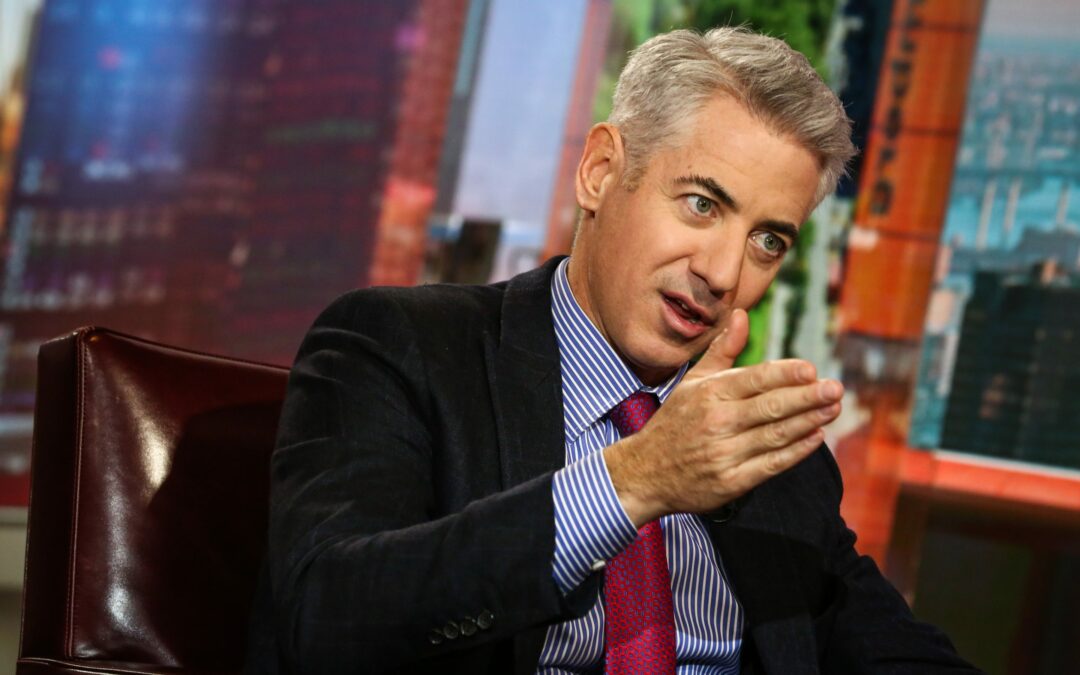Cross border tax advice
William Ackman isn’t known for his political takes. Typically, the billionaire hedge fund manager spends his time dissecting corporate financials, looking for his next high-profile investment or activist play.
But this week, the CEO of Pershing Square Capital Management found himself in the middle of a heated debate over the carried interest “loophole”—which allows private equity and hedge fund managers to reduce their tax burden on profits from fund investments. It’s a key part of the tax code that has helped make so many hedge fund managers like Ackman billionaires in the first place.
Democrats have been working to close the carried interest loophole as part of the proposed $739 billion Inflation Reduction Act of 2022, and many hedge fund managers have come out in opposition—but not Ackman.
“The carried interest loophole is a stain on the tax code,” Ackman said in a Thursday tweet.
While a billionaire hedge fund manager may seem like an unlikely backer of the Dems’ fight against tax loopholes, Ackman has actually been arguing for the closure of the carried interest loophole for a decade now.
But before jumping into the billionaire’s beef with carried interest, it’s best to define some key terms.
Cross border tax advice Carried interest: A ‘loophole’ or an entrepreneur’s best friend?
Private equity and hedge funds earn money in two key ways. First, they charge a base management fee on the total amount of money a client has invested. Second, they earn a share of the profits from their fund’s investments if they achieve a minimum return known as the hurdle rate. Any profits earned by managers above the hurdle rate are called carried interest.
The carried interest provision allows fund managers to pay a capital gains tax rate (roughly 20%) on these earnings, instead of the much higher regular income tax rate (37% for single filers’ taxable income above $539,900).
This tax treatment, or “loophole,” depending on who you ask, is supposed to incentivize money managers to earn better returns for their investors. But Ackman questioned this purported purpose on Friday in a Twitter thread.
“The daily activity of investment management does not need the additional incentive of lower carried interest taxation to drive behavior,” he said. “Put simply, there should be no difference in the tax rate on the management fee income investment managers receive compared to the incentive fees they receive as they are simply fees in various forms…They don’t need the extra boost from lower rates to motivate them to work better or harder for their clients. The fees are sufficient to motivate their behavior.”
Ackman isn’t the only big name on Wall Street that has spoken out against the carried interest loophole. Berkshire Hathaway CEO Warren Buffett has argued for closing the loophole for over a decade.
“If you believe in taxing people who earn income on their occupation, I think you should tax people on carried interest,” he said at a congressional hearing in 2010.
Still, proponents of the current carried interest tax treatment argue that changes to the tax code will hurt entrepreneurs.
“Increasing taxes on carried interest means many entrepreneurial firms and small businesses across sectors will not have access to the capital they need to compete, scale, innovate, and navigate challenging economic conditions,” the Small Business and Entrepreneurship Council said in a Friday statement. “This will only hurt local economies and workers, and more broadly undermine U.S. competitiveness.”
Drew Maloney, the CEO of the American Investment Council, also rebuked attempts to close the carried interest tax treatment in a Thursday statement.
“Over 74% of private equity investment went to small businesses last year,” he said. “As small-business owners face rising costs and our economy faces serious headwinds, Washington should not move forward with a new tax on the private capital that is helping local employers survive and grow.”
The Commercial Real Estate Development Association also argues that closing the carried interest will “disproportionately impact the real estate industry since real estate partnerships comprise a large number of partnerships and many use a carried interest component in structuring development ventures.”
And even Ackman noted on Friday that carried interest has value for entrepreneurs, allowing them to have favorable tax treatment as a sort of payment for the risks they take that can drive economic growth.
“This system has driven enormous job and wealth creation and is the biggest driver of our economy. It, therefore, needs to be preserved at all costs,” he wrote. “Giving favorable tax treatment for entrepreneurs who build businesses, develop real estate, drill for gas, sequester carbon, etc. creates powerful incentives that drive these high-risk activities and presents investment opportunities for passive investors who don’t have these capabilities.”
But when it comes to private equity and hedge fund managers, Ackman said the carried interest loophole doesn’t add any value.
“It does not help small businesses, pension funds, other investors in hedge funds or private equity, and everyone in the industry knows it. It is an embarrassment, and it should end now,” he said.
Sign up for the Fortune Features email list so you don’t miss our biggest features, exclusive interviews, and investigations.
This news is brought to you by IWTA. Founded in 2015 and located on Avenue of the Americas, in the heart of New York City, International Wealth Tax Advisors provides highly personalized, secure and private global tax, GILTI, FATCA, Foreign Trusts consulting and accounting to many IWTAS.COM clients worldwide, including: Singapore, China, Mexico, Ecuador, Peru, Brazil, Argentina, Saudi Arabia, Pakistan, Afghanistan, South Africa, United Kingdom, France, Spain, Switzerland, Australia and New Zealand.

